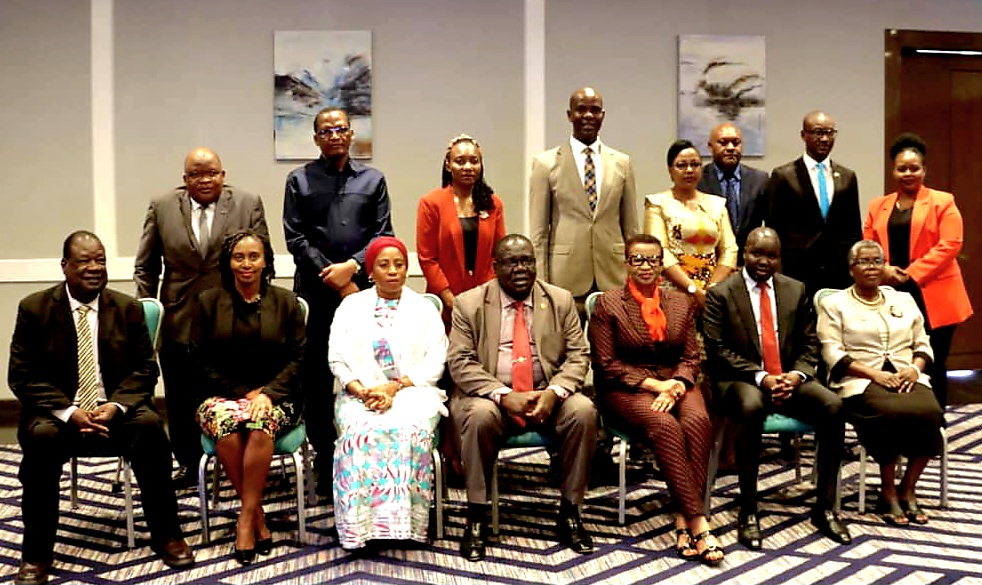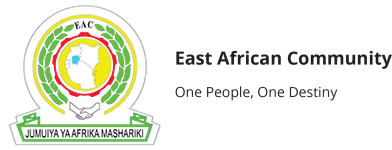
24th Ordinary Sectoral Council on Health approves the EAC Cross-Border Health Advocacy and Community Strategy (2024-2023)
East African Community Headquarters, Arusha, Tanzania, 7th May , 2024: The 24th Ordinary Meeting of the EAC Sectoral Council of Ministers of Health held on 3rd May, 2024 in Dar es Salaam, Tanzania approved the 6-year EAC Cross-Border Health Advocacy and Communication Strategy (2024-2030) aimed at facilitating faster domestication and implementation of health directives, policies and programmes by enhancing the effectiveness of communication between the EAC Secretariat and Partner States.
The strategy is expected to play a critical role in increasing the level of advocacy and communication, and in promoting visibility and rallying the commitment of policy and decision makers at the Partner States’ level to implement cross border health programmes.
Furthermore, the strategy will support strengthening and leveraging partnerships at national, regional and global levels for improved accountability and transparency by stakeholders.
Approving the strategy during the Ministerial Session, Partner States Ministers of Health said the regional strategy should be used by the Partner States and the Secretariat to increase awareness and support the implementation of the decisions and directives of the Sectoral Council.
The Sectoral Council also directed that EAC Secretariat to work with Partner States and ensure that the strategy, among other things focuses on the execution of directives through enhancing awareness, information sharing and knowledge dissemination of the directives and policies from the EAC health sector to Partner States health policy makers; and increasing access to health services among target populations.

The five-day meeting from 29th May to 3rd May, 2024 also considered other progress reports of the implementation of the previous decision of the Sectoral Council and provide guidance and directives.
On the EAC Regional Health Scorecard, the EAC Secretariat informed that Sectoral Council that the Secretariat in collaboration with Partner States had developed the 6th EAC Regional Health Scorecard in digital form as an innovative tool for communicating and monitoring the status of progress to implementers, stakeholders, and decision-makers in the region.
The Ministers also approved the digital version of the 6th EAC Regional Health Scorecard for tracking regional progress on implementing global and regional commitments against agreed-upon indicators and directed the Secretariat to mobilise resources to support the Partner States' digitalisation of National Health Scorecards and build data governance/use and digital innovation capacity.
On the EAC Non-Communicable Diseases (NCD) Strategic Framework 2024- 2030, EAC Secretariat informed the Sectoral Council that the EAC Partner States together with the Secretariat developed the EAC Non-Communicable Diseases (NCDs) strategic Framework 2024-2030, in line with previous directives of the Sectoral Council respectively. The goal of the framework is to reduce the premature mortality due to NCDs by 20%, in the region by 2030.
The Sectoral Council also directed the Secretariat and Partner States to mobilise resources to disseminate the EAC Regional Strategic Framework for Prevention and Control of Non-Communicable Diseases (2024-2030) and track its implementation.
On institutionalising the One Health approach in the EAC Secretariat / EAC One Health Coordination Office, Secretariat informed the sectoral council that is in the process of establishing a One Health Coordination Office to strengthen multi-sectoral collaboration, especially between human health, animal health/agriculture, wildlife and environmental sectors within the Secretariat, as well as with the EAC Partner States.
The Sectoral Council further resolved that the EAC Secretariat should mobilise resources and recruit a Senior One Health Expert to coordinate the One Health Unit.
 On a request from the United Republic of Tanzania to establish the EAC Regional Centre of Excellence in Transplant and Haematological Sciences, the Secretariat informed the Sectoral Council that Tanzania had submitted an official request to the EAC Secretary General on 16th April, 2024 to table a Concept Note for the establishment of the EAC Regional Centre of Excellence in Transplant and Haematological Sciences to be hosted by the Benjamin Mkapa Hospital in Dodoma.
On a request from the United Republic of Tanzania to establish the EAC Regional Centre of Excellence in Transplant and Haematological Sciences, the Secretariat informed the Sectoral Council that Tanzania had submitted an official request to the EAC Secretary General on 16th April, 2024 to table a Concept Note for the establishment of the EAC Regional Centre of Excellence in Transplant and Haematological Sciences to be hosted by the Benjamin Mkapa Hospital in Dodoma.
The proposed Centre of Excellence initiative would significantly reduce morbidity and mortality resulting from haematological complications and indirectly improve the health outcomes of EAC populations, ultimately enhancing the socioeconomic well-being of EAC citizens.
The Sectoral Council directed that the EAC Secretariat in collaboration with Partner States should convene national consultations to generate inputs into the concept notes for establishment of the two proposed Centres of Excellence in Transplant and Heamatological Sciencein Tanzania and convene an Extra-Ordinary meeting of the Sectoral Council to consider the report of national consultations by 15th June, 2024.
Speaking during the opening of the Ministerial Session, the Chairperson of the Sectoral Council on Health H.E Johnson Jumqa Okot, the Ambassador of the Republic of South Sudan to Tanzania, representing the Minister of Health in South Sudan, said the region still faces challenges of disease outbreaks, global climate changes and its consequences and called for collective efforts to develop strategies and mobilise more resources for the health sector.

On his part, the EAC Deputy Secretary General in charge of Infrastructure, Productive, Social and Political Sectors, Hon. Andrea Aguer Ariik Malueth, informed the meeting that the EAC Secretariat in collaboration with the Partner States have been working tirelessly to implement the directives of the Sectoral Council within the available resources and capacity.
Hon. Ariik highlighted key achievements including the development of the EAC Health Sector Strategic Plan 2024-2030, strengthening surveillance, detection of health threats and mobilisation of additional resources that will help in sustaining flagship programmes among others.
Also present at the meeting were: Hon. Ummy Mwalimu, Minister of Health, Tanzania; Hon. Dr. Lydwine Baradahana, Minister of Public Health and Fight Against AIDS, Burundi; Dr. Yvan Butera, Minister of State for Health, Rwanda; and Hon. Hanifa Kawooya Bangirana, Minister of State for Health, Uganda.
Others were Hon Hon. Magodde Ikuya, Minister of State for EAC Affairs, Uganda and Ms. Mary. Muthoni Muriuki, the Principal Secretary, Ministry of Health Kenya, representing the Cabinet Secretary for Health, Kenya.
For more information, please contact:
Simon Peter Owaka
Senior Public Relations OfficerCorporate Communications and Public Affairs DepartmentEAC SecretariatArusha, TanzaniaTel: +255 768 552087Email: This email address is being protected from spambots. You need JavaScript enabled to view it.
About the East African Community Secretariat:
The East African Community (EAC) is a regional intergovernmental organisation of eight (8) Partner States, comprising the Republic of Burundi, the Democratic Republic of Congo, the Republic of Kenya, the Republic of Rwanda, the Federal Republic of Somalia, the Republic of South Sudan, the Republic of Uganda and the United Republic of Tanzania, with its headquarters in Arusha, Tanzania. The Federal Republic of Somalia was admitted into the EAC bloc by the Summit of EAC Heads of State on 24th November, 2023 and became a full member on 4th March, 2024.
